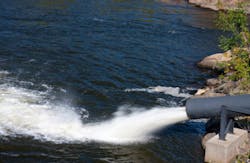Environmental group calls for improved sewage treatment to prevent pharmaceutical pollution
A new report says that improvements to sewage and wastewater treatment are needed to help prevent human and veterinary medicines from polluting rivers and harming wild birds, fish and other species.
This pollution also poses a threat to humans via drinking water supplies and food chain contamination. And there are concerns that antibiotics in the environment may contribute to the growing problem of antibiotic resistance in bacteria.
Monitoring and controlling the presence of pharmaceuticals in the environment is difficult and currently inadequate, environmental charity CHEM Trust said.
The organization wants sewage treatment works to be improved so that they remove pharmaceutical pollution from wastewater. It also said that there is a need for continued research and development to optimize water treatment technologies and make facilities as energy efficient as possible.
The report also recommends that unused medicines are disposed of at pharmacies and not by flushing them down the toilet, and that new medicines are designed so that they don't persist in the environment.
In addition, CHEM Trust called on the European Union to strengthen laws relating to the pollution of rivers with pharmaceuticals, and said that better international coordination is needed on this issue.
The author of the report, Gwynne Lyons, director of policy at CHEM Trust, commented:
"Most people would probably be surprised that in general they excrete between 30-90 percent of any medicine they take. With so many medicines now being found in our rivers, action on all fronts is needed to protect wildlife and drinking water."
